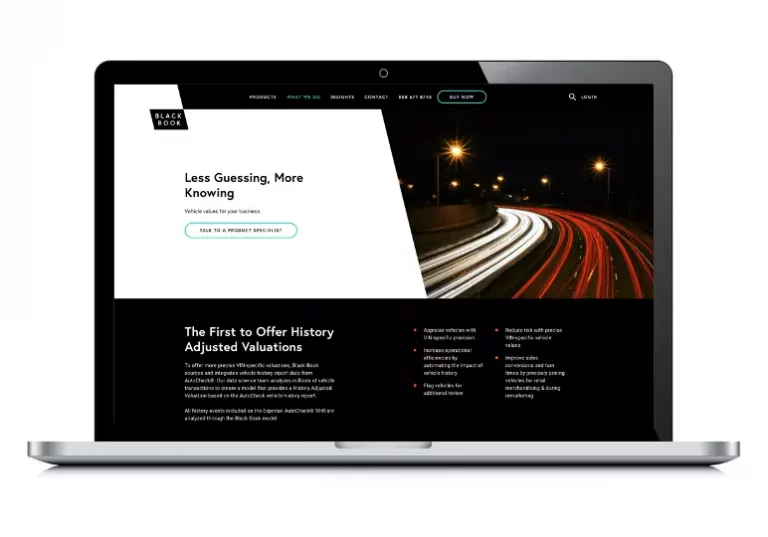AUTOMOTIVE EDITORIAL SYSTEM
Case Study
Client
Black Book is best known in the automotive industry for providing timely, independent, and accurate vehicle pricing information that is available to qualified industry users through website subscriptions, its web services, mobile applications, and licensing agreements. We assisted Black Book with the analysis, design and development of its automotive editorial system called Autobahn.
Business Challenge
Autobahn was a fourteen-year-old system that was built with legacy Microsoft tools such as Visual Basic 6.0, third party components, and SQL Server. When the original architecture was written its capabilities were limited. The platform was required to be on-premise where it was also maintained which meant it could not scale. Plus, Black Book’s editors were required to work within the system’s framework versus a more efficient publishing and data distribution workflow. Therefore, Black Book needed an advanced platform that allowed expert curation of automotive pricing along with advanced analytics support.
The newly developed platform required:
- A system design that provided editors with more efficient tools and to equip them with all relevant data and analytics.
- Editorial assistance in doing their jobs with powerful editing, reporting, and analytics tools.
- A system that would assemble all data needed to support analysis and reduce manual work.
- Suggestions for price adjustments, and improved editorial control.
- A human-machine combination that is more powerful than human or machine alone.
Black Book needed an advanced platform that would allow expert curation of automotive pricing and advanced analytics support.
Solutions
Working with Black Book, we elected to use Agile methodology to implement the Autobahn 2.0 project. This was an exciting and collaborative project that Black Book and our team designed. Through the power of Amazon’s cloud services, we were able to implement the solution’s foundation.
As part of fulfilling this business need, we helped build an internal-facing web application and a machine-to-cloud API for data ingestion and external publication. At the foundation, the data layer included aspects of relational and historical data (PostGRES). The web application’s user interface was developed using HTML/CSS/Typescript using Angular 2.0 to support a strong separation between the user interface and business logic, which resided in the web API layer. The core technology for the logic layer was Node.js written in TypeScript and compiled into JavaScript.
Impact
Black Book’s original scope for the project was for their smaller channels, Powersports and Recreational Vehicle. Within four months we began managing the implementation of all their channels: Used Cars, New Cars, Collectible Cars, and Heavy & Medium Duty Trucks in both the U.S. and Canadian markets. Our project team closely collaborated and mentored Black Book’s development team by allowing one of their members to be a part of the SCRUM/Agile process.


